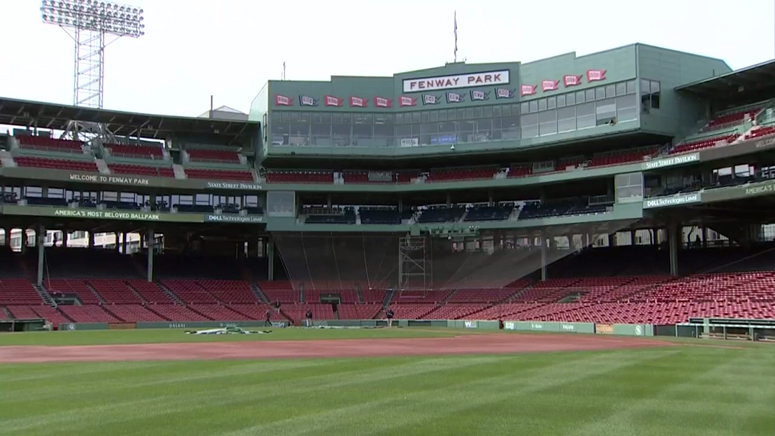The lights will be on at Fenway Park on Tuesday night when the hometown team plays its first game in months, an exhibition tuneup against the Toronto Blue Jays.
The Major League Baseball season is set to resume on Thursday and the Red Sox open at home on Friday night in front of an empty grandstand. But even without fans, one team executive told Beacon Hill lawmakers that the return of professional sports presents an opportunity for both the team and the state that should be seized.
“As you consider potential items for an economic development bill to spur recovery during
this pandemic, we believe that mobile sports betting is low-hanging fruit,” said David Friedman, senior vice president of legal and government affairs for the Boston Red Sox.
Friedman has some standing to make such a claim. The baseball executive once worked under the Golden Dome as counsel and chief policy advisor to former Senate President Robert Travaglini. He also worked in the Attorney General’s office.
With some estimates putting the potential for revenue to the state as high as $50 million, Friedman said sports betting “can spare you from making deeper more painful budget cuts.”
“To be sure, sports betting won’t fix the state’s massive budget deficit, but to use baseball terms, while it may not be a grand slam, it’s a solid single,” he said.
Friedman testified Tuesday before a special House committee led by Majority Leader Ron Mariano of Quincy focused on policy solutions to help Massachusetts recover economically from the COVID-19 pandemic. The committee on Tuesday also heard from the Baker administration and Massachusetts Competitive Partnership CEO Jay Ash.
While Ash and Undersecretary of Workforce Development Jennifer James focused on a host of programs and ideas to better align the state’s workforce training and job recovery efforts, Friedman was there to testify on one thing — sports betting.
Friedman said he represented a coalition consisting of the Red Sox, MLB, the Celtics, the NBA, the PGA Tour, DraftKings, FanDuel, and MGM, which operates a casino in Springfield. The group, he said, were in agreement on a framework for sports betting to be legalized in Massachusetts, and were making a final push in hopes of seeing the Legislature enact a bill before the end of the session in two weeks.
The Committee on Economic Development and Emerging Technologies spent all of 2019 studying the issue, and in February reported out a bill that would legalize and tax in-person and mobile betting on professional and Division I college sports.
The Massachusetts Gaming Commission would take responsibility for overseeing a new sports wagering industry, which has been legalized in 22 states, as well as the District of Columbia and Puerto Rico. That bill is currently pending before the House Ways and Means Committee.
Friedman said that before the pandemic teams like the Red Sox saw sports betting as a new opportunity to engage fans, particularly younger fans who may be enticed to watch a game on television if they could place a small-dollar bet on something as minor as whether Xander Bogaerts hits a home run.
But after four months of living through the pandemic, the Red Sox executive said there is a new sense of urgency as they embark on an abbreviated season with no ticket or concession sales.
“Our revenues have fallen off a cliff,” Friedman said. “The direct financial impact and revenues of sports betting for teams is relatively modest. We won’t be running a sports book ourselves. But today, every single extra dollar of advertising and sponsorship revenue is extremely important for us.”
No one on the special House committee said anything about the prospect for sports betting to become legal this session, despite it’s prominence at one point before the pandemic on the legislative agenda.
Mariano did express his surprise, however, that the list of organizations Friedman described as being united on the issue had reached any agreement on a framework for the bill.
Friedman suggested that if the House and Senate were able to get a bill done by July 31, betting operators like DraftKings could be ready to accept wagers before the end of the baseball season, or a least by opening day next year when the effects of COVID-19 could still be lingering.
The could mean jobs at companies like DraftKings that might otherwise have to be located out of state because of federal rules that do not allow for the transmission of some data within a company to and from states where sports betting is not legal.
As casinos reopen at limited capacity, the chance to operate a sports book could be used to entice people onto gaming floors like the one at MGM Springfield, which could generate more tax revenue for the state.
(Copyright (c) 2024 State House News Service.

